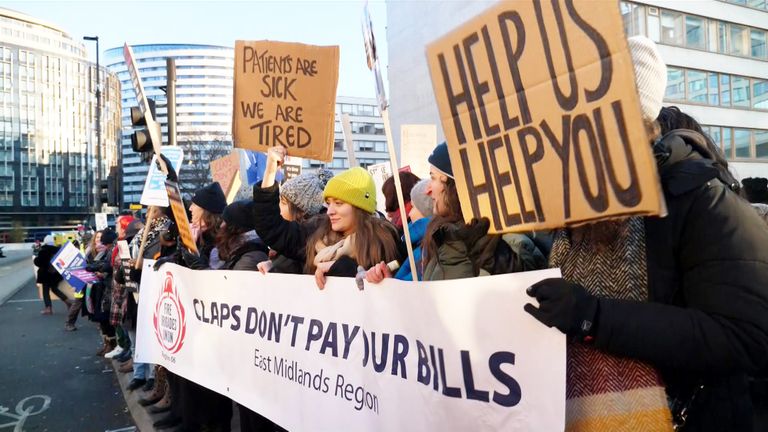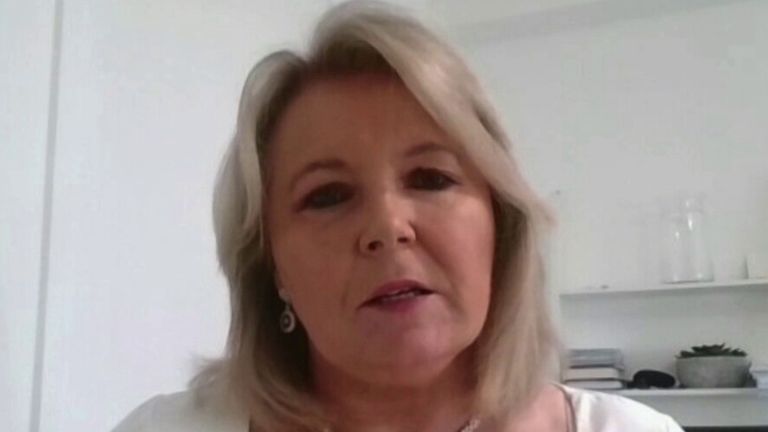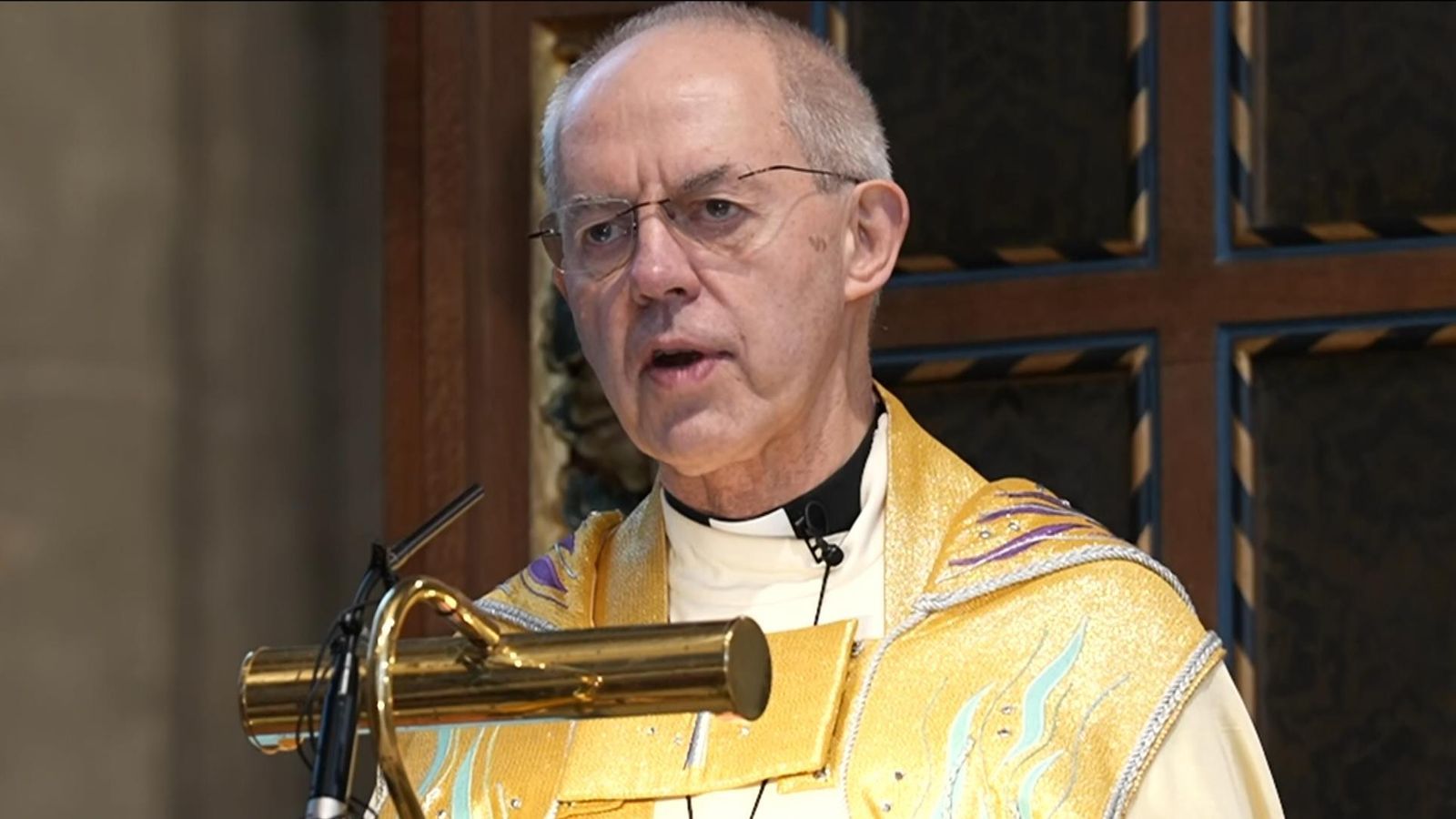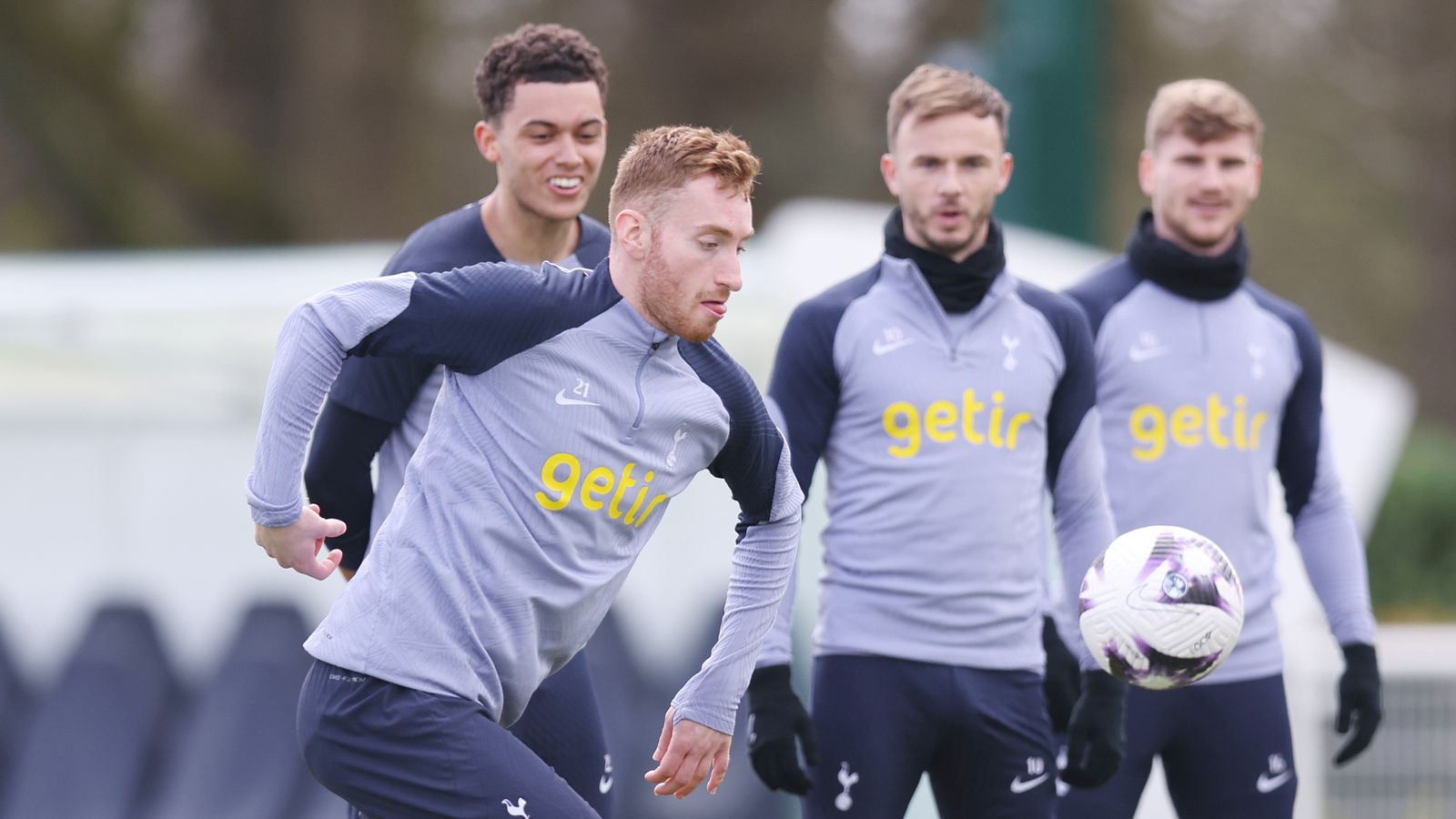
The head of the UK’s nursing union wants to restart negotiations seeking a double-digit pay rise – despite previously recommending a lower offer.
Pat Cullen, the general secretary of the Royal College of Nursing (RCN), had advised members to accept an offer of 5%, but they voted to reject it.
Speaking to Sky News’ Sophy Ridge On Sunday programme, cabinet minister Grant Shapps said: “I find this a very curious story indeed because Pat Cullen just recently was encouraging her members to settle for the pay rise that was put on the table.
“I thought this was a great settlement.
“It’s frankly rather confusing having encouraged her members to accept that deal, she seems to now be coming back and saying the opposite.
“You have got to balance that with the rest of the public purse.”
But speaking on Sunday, Ms Cullen hit back, saying the decision by nurses to reject the deal in a ballot was them saying “loud and clear” that the offer – of a 9% increase consolidated over two years – was “just not enough”.
“They rejected that and they want negotiations re-opened for them and here needs to be more money added to the table,” she said.
Asked if a double-digit pay rise was achievable, she said: “There is nothing unrealistic about what nursing staff are asking for.
“The only way that we are going to resolve this dispute is to listen to their voice and make sure this pay dispute is resolved, for patients as much as it is for the profession.”
RCN members will be balloted again for strike action on 23 May after the existing six-month mandate ran out at the start of the month.
Ms Cullen described striking as one of the “hardest decisions”, and told The Sunday Times that fresh negotiations were needed to prevent six more months of action.
“They [ministers] owe that to nursing staff not to push them to have to do another six months of industrial action right up to Christmas,” she said ahead of Sunday’s RCN congress in Brighton, telling Health Secretary Steve Barclay talks needed to “start off in double figures”.
“It’s just not right for the profession,” she said.
“It’s not right for patients. But whose responsibility is it to resolve it? It is this government.”
An RCN spokesperson said: “The negotiations covered two financial years which resulted in a consolidated NHS pay increase of 9%. When our members rejected that, it is clear they expect an offer into double figures.”
Fourteen other unions have accepted the government’s 5% offer, including Unison, the NHS’s biggest union. Others like Unite continue to seek a better offer.
A health department source added: “It is strange how quickly the RCN leader has changed her tune from recommending this pay deal, which she now refers to as an insult to nurses.”
The comments come after Ms Cullen told The Sunday Times: “It’s not so long ago since the prime minister went on the media and very publicly said nurses are an exception,” she said when asked why nurses warrant a larger increase than other healthcare workers.
“I would totally agree with him… they should be made an exception because they are exceptional people.”
Read more:
Nurses to vote on England-wide strike action after rejecting 5% pay rise
NHS employers and unions meet as health secretary ‘optimistic’ deal will be reached
Nurses’ strike begins as union insists critical care exemptions are in place
The mental health nurse, 58, from Co Tyrone, said patient safety was “at the centre of everything that we do”.
“We will do nothing that will add further risk to the patients that we look after,” she said, saying increased pay would see nurses return to the profession and ease a staffing crisis.
“The truth is that patient safety cannot be guaranteed on any day of the week. How could you guarantee patient safety when you have 47,000 nurses from your workforce every single day and night?”
She also warned Prime Minister Rishi Sunak not to take her members lightly.
“Looking back on this pay offer, I may personally have underestimated the members and their sheer determination,” she said.
“I think what I would be saying to the prime minister, Rishi Sunak, is ‘Don’t – don’t make that same mistake, don’t underestimate them’.
“Nurses believe it’s their duty and their responsibility because this government is not listening to them on how to bring it [the NHS] back from the brink and the message to the prime minister is that they are absolutely not going to blink first in these negotiations.”












